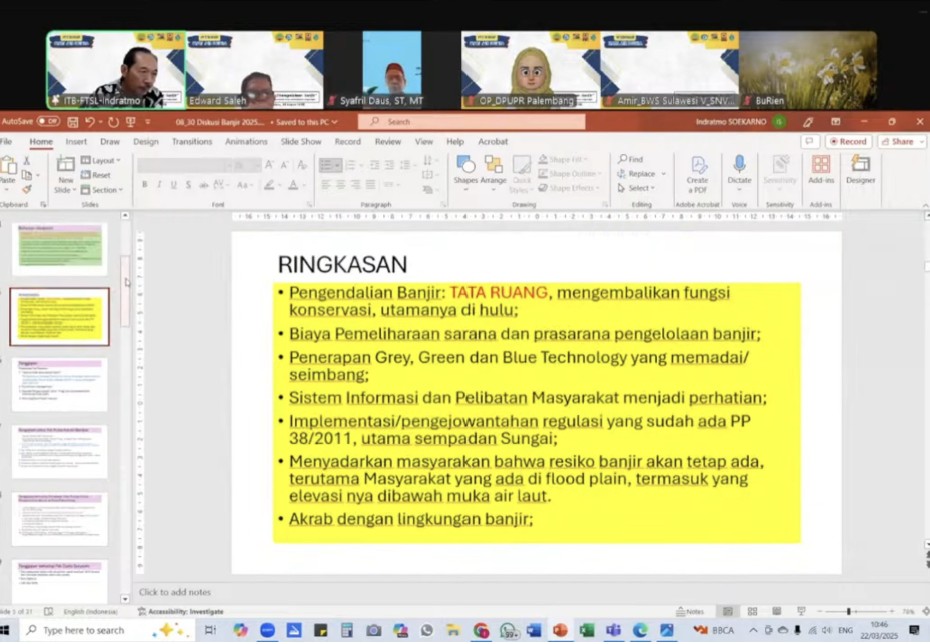ITB Researcher Develops GeoPore to Tackle Flood
By Ahmad Fadil
Editor Ahmad Fadil

BANDUNG, itb.ac.id – Every time rainy season comes, flood become the main problem. It inundates homes and roads, thus hampering human activities. One of the causes of flood is reduced area for water absorption due to land conversion and massive development that pays no attention to environment.
Departing from this problem, a lecturer at Engineering Physics of ITB, Prof. Bambang Sunendar Purwasasmita created an innovation that help minimalize flood. The innovation is called GeoPore.
GeoPore is acronym for Geopolymer Porous or Porous Roads. The innovation is created as alternative to paving block or concrete that is generally used in infrastructure development in Indonesia. The difference as well as the advantage of GeoPore compared to concrete is the pores.
“The pores in GeoPore allow water to be absorbed in to soil so that flowing water can be reduced. Therefore, we can minimize the potential for flood,” said M Rizqi Abdullah, a student of Master’s Program of Engineering Physics ITB who is also one of GeoPore Researchers.
Rizqi explained that another difference between GeoPore and commercial paving block is the material. GeoPore is made by utilizing fly-ash, a coal waste as substituent of cement in commercial paving block production. In addition, water and sand used as commercial paving block materials are substituted with activator and small pebbles that will create pores on GeoPore. “The activator is a mixture of sodium silicate and sodium hydroxide,” he explained.
This GeoPore is Geopolymer based. The advantages are it is made of local material, creates better drainage, contains bio pores along the construction, and absorbs water faster. Its high absorption rate, about 1000 liter/m2 a minute can be a solution to flood. Currently GeoPore is applied on pedestrian lanes, road construction, parking area, and carport. In ITB, GeoPore is used in the construction of Jalan G inside ITB Ganesa campus.
The challenged face by GeoPore researchers, according to Rizqi, is finding out the right composition of activator so that GeoPore can be equal or stronger than commercial paving block. Commonly, the strength of commercial paving block is about 200 kg/cm2 (k200), while the current GeoPore is only 150 kg/cm2 (k150).
“Initially in 2009, the development of GeoPore is under cooperation with BP2D of West Java, especially for the funding. In 2018, we begin to cooperate with Kemenristekdikti to refine the product before commercialization,” Rizqi said.
According to Rizqi, GeoPore is estimated to cost more than commercial paving block, and that is a challenge to make the public welcome it. He estimated the selling price of each GeoPore right now is around 3,500 rupiah. That cost 500 ruapiah more than commercial paving block.
The GeoPore is displayed in ITB Innovation Exhibition 2018 in commemoration of Engineering Higher Education in Indonesia that took place at Aula Timur ITB, on 4-5 July 2018. He hopes that after the refinement of GeoPore is done and it can be mass produced, the selling price could be reduced and even cheaper than that of commercial paving block. “That way, public will welcome it warmly,” he said.
Reporter: Jonatan Kevin Daniel



.jpg)

.jpg)



